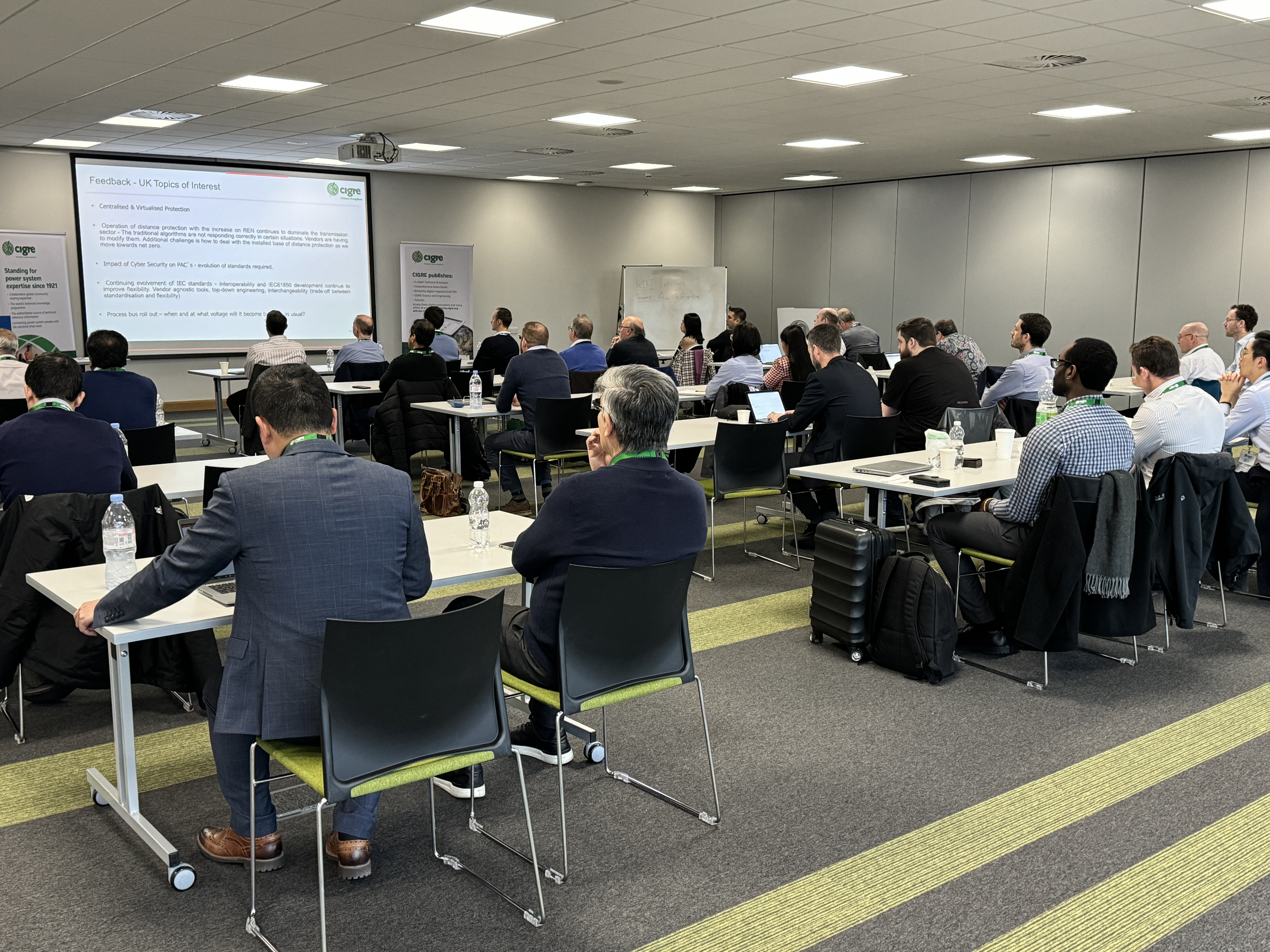
About
The purpose of the meeting, was to provide a high-level overview of the ongoing activities in CIGRE related to Study Committee B5 (Protection and Automation) and D2 (Information systems and Telecommunication) led by UK Regular Members John Wright and Thomas Charton. There were keynote presentations, updates on a recent Cairns Symposium, a review of Technical Brochures published in the last year, along with a status update on all of the active Working Groups where the UK has an interest. This was a face-to-face event kindly hosted at GE Grid Solutions Stafford.
Presentations: click on the title to review
Study Committee D2 Update_Thomas Charton
Study Committee B5 Update_John Wright
Progress of Digital Substations_Chee Pinp Teoh
Impact of Cyber Security of Digital Substations_Prasad Balasubramani and Ryan Murphy
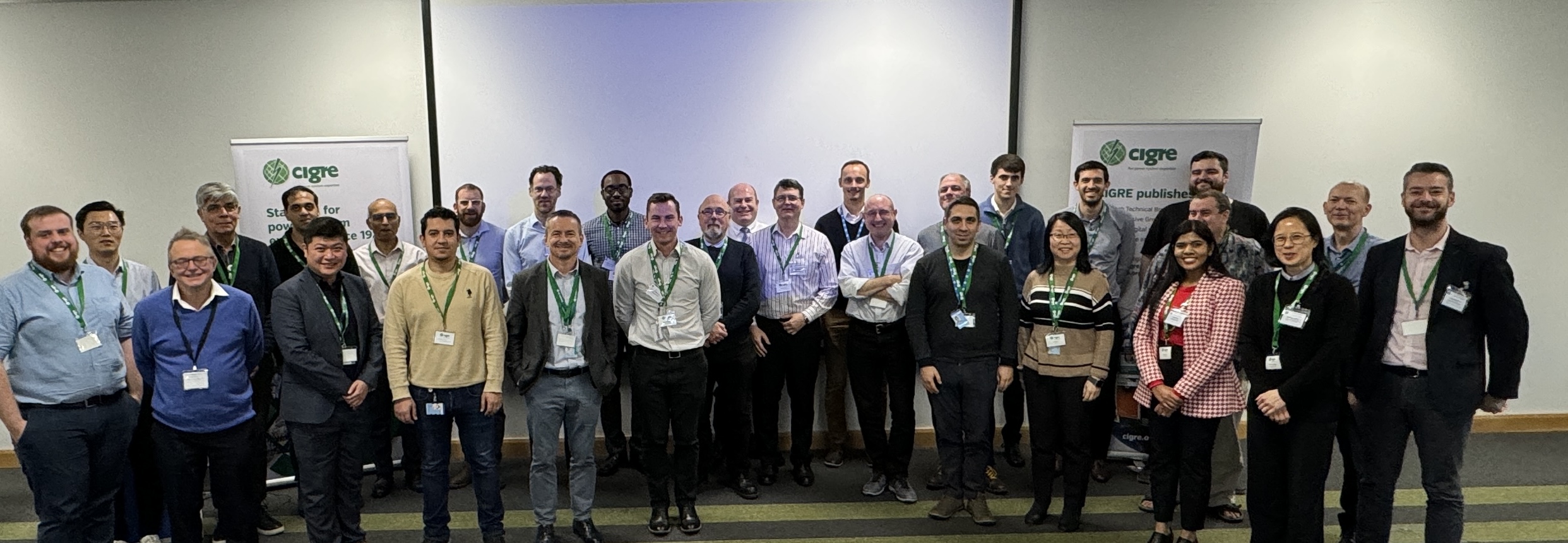
B5 Study Committee Mission, Technology and Scope:
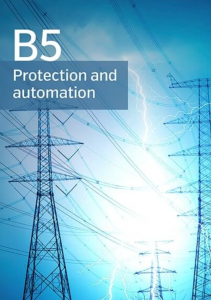 Mission
Mission
To facilitate and promote the progress of engineering and the international exchange of information and knowledge in the field of protection and automation. To add value to this information and knowledge by means of synthesizing state-of-the-art practices and developing recommendations.
Technological field of activity
Power system protection, substation control and automation, remote control systems and equipment, metering systems and equipment.
Scope
Within its technical field of activity, Study Committee B5 addresses topics throughout the asset management life-cycle phases; from conception, through research, development, design, production, deployment, operation, and end-of life. At all stages, technical, safety, economic, environmental and social aspects are addressed as well as interactions with, and integration into, the evolving power system and the environment. All aspects of performance, specification, testing and the application of testing techniques are within scope, with a specific focus on the impact of changing interactions and demands due to evolution of the power system. Life cycle assessment techniques, risk management techniques, education and training are also important aspects.
Within this framework additional specific areas of attention include:
- Theory, principles and concepts, functionality, technological development, design, performance and application of materials, efficiency.
- Manufacturing, quality assurance, application guidance, planning, routing and location, construction, erection, installation.
- Reliability, availability, dependability, maintainability and maintenance, service, condition monitoring, diagnostics, restoration, repair, loading, upgrading, uprating.
- Refurbishment, re-use/re-deployment, deterioration, dismantling, disposal.
Regular Member – John Wright
Worked in the Protection and Control Industry for over 30 years. Presently; Europe, Central Asia & Sub Saharan Africa Regional Technical Applications Engineer Leader for GE Grid Automation, GE Senior Fellow and IET Fellow. Been involved in Cigre for over 15 years and currently UK Regular Member for B5 and convenor of working group B5.81.
–
D2 Study Committee Mission, Technology and Scope:
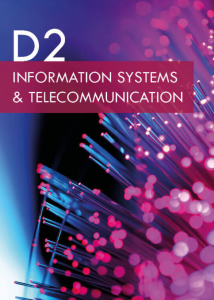 Mission
Mission
To facilitate and promote the progress of engineering and the international exchange of information and knowledge in the field of information systems and telecommunication. To add value to this information and knowledge by means of synthesizing state-of-the- art practices and developing recommendations.
Scope
Within its technical field of activity, Study Committee D2 addresses topics throughout the application of current and future information and communication technologies (ICT) to the evolving end-to-end value chain of the electric power system. ICT equipment, architectures, security and governance including consideration of fundamental principles, design, specification, testing engineering, commissioning, performance, operation and maintenance aspects.
Areas of attention include:
- ICT applied to digital networks throughout the end-to-end power system including smart meters, energy management systems (EMS), Internet of Things, big data
- Communication solutions for information exchange between all participants in the electrical power system
- Interoperability and data exchange (file format, frequency, etc.) between all participants in the electrical power system including network operators, market players, off-grid premises
- Cyber security issues at all levels from field equipment through to corporate IT including governance constraints, system design, implementation, testing, operation and maintenance
- Technologies and architectures to ensure business continuity and disaster recovery IT systems to support the decision-making process in Asset Management
Regular Member – Thomas Charton
Thomas Charton is a Senior Lifecycle Engineer at National Grid Electricity Transmission (NGET). He joined National Grid in 2010 as a SCADA and Communications Engineer and is now responsible for NGET’s Substation Control System, telecommunication and cyber security lifecycle management. He is also leading NGET’s digital substation development and rollout. In 2022 he was appointed to the role of UK regular member for CIGRE D2 (Information Systems and Telecommunications). Thomas is a chartered electrical engineer, a member of the IET and received his M.Eng. in Electrical Engineering in 2000 followed by a Ph.D in 2005.
